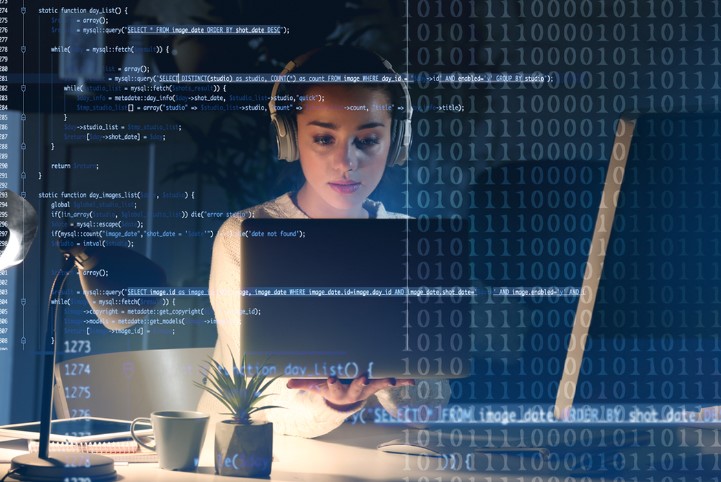Santa Fe Extracurricular Program Combines Chess With Coding

(TNS) — A talk with Mark Galassi, even if it spans a few minutes, is likely to be a sweeping conversation, one that soars way out into the galaxy and plunges deep down into the human psyche.
It’s a guided tour of the universe.
Back when he was a bright 13-year-old — but “not a particularly strong student,” Galassi said — teachers at his middle school in Italy, where he spent most of his childhood, recommended he consider becoming a tour guide.
Instead, he became an astrophysicist and computer programmer at Los Alamos National Laboratory, exploring black holes and gamma rays.
“In Los Alamos, you solve the big problems,” said Galassi, 56. “The problems that take a decade, a decade and a half to solve.”
Described as a “workaholic” by colleague Ed Fenimore, Galassi spends his free time making sure young people in the Santa Fe area with an interest in math, science and computers are prepared to follow in his footsteps. He has designed an extracurricular system that begins with chess, ventures into computer coding and culminates with a research internship. He aims to create a pipeline of kids headed for careers fueled by computing research.
Fenimore said hundred of students, from elementary school to high school, have participated in Galassi’s free classes.
Galassi’s dedication to youth has earned him a spot as one of The New Mexican’s 10 Who Made a Difference for 2021.
He begins building connections with young students through the Santa Fe Chess Club, which he founded.
“You can have children playing chess as if they’re playing bocce or bowling,” Galassi said.
Kids in the chess program are then introduced to his free computing classes, such as the 10-hour Serious Computer Programming workshop for those in sixth grade and older.
High schoolers with some proficiency in coding languages like Python are eligible for paid internships working with professional scientists through Galassi’s Institute for Computing Research, which is based in Santa Fe but recently launched a new branch in Portland, Ore.
He’s carving out spaces for students to do the work they’re drawn to, with the help of a strong network of scientists and other professionals.
“I love what I do so much that I want to pass it on,” he said.
“I think when it really kicks into gear is when kids are able to type.”
He said that is an essential time for tracking down analytically minded youth who want to learn more about computing because it’s generally the time when kids who could be headed for careers in science and technology fall through the cracks of the school system.
That’s a big problem he’s been trying to solve in the last decade.
“I’m absolutely sick and tired of the fact that people who could be very fulfilled in jobs are not rising to certain levels because at some point between fourth and 12th grade, the pipeline started leaking women and minorities,” Galassi said.
A Gallup survey of 1,400 students in 2020 showed a quarter of girls who responded were interested in computer science while half the boys who answered were.
The study also found boys tend to be more confident about their computing abilities and are three times as likely to believe they’ll go into a computer-related career.
There are many reasons why girls, low-income students and minorities might not pursue a career that utilizes computer science — be it in political analysis or physics, Galassi said, but he aims to avoid amplifying those barriers.
He said he believes when a student has to identify as an “ambassador” of their gender or ethnicity, or even their economic status, the role detracts from their work as a scientist.
“That means every time I talk to the student, I need to say, ‘You’re a scientist, and I’m respecting you. I want to recruit you as a scientist,’ ” Galassi said.
One of his past students is Miles Teng-Levy, a freshman studying engineering at Union College in New York. Teng-Levy was a grade schooler with an affinity for chess when he first met Galassi.
Teng-Levy wanted to learn more about physics than Mandela International Magnet School offered, so Galassi helped create extracurricular classes for him and other students.
“He always had us doing the problems and, in a sense, teaching the class,” Teng-Levy said. “We would be the ones standing up and working at the whiteboard.”
Teng-Levy was eventually able to secure an internship at Los Alamos National Laboratory studying physics.
“I wouldn’t have been able to do it without all of his help in the prior years,” Teng-Levy said of Galassi.
His mother, Suzanne Teng, is endlessly grateful — so much so that she’s attempted to give the astrophysicist produce from the family garden as a thank you.
“He’s dedicated … and fully without any expectation of payment in any form,” she said. “He’s an amazing asset to the community.”
To Galassi, and the network of scientists and other professionals who make up the Institute for Computing Research, computing skills are simply the future in every industry and promote job security.
“One thing I just can’t emphasize enough is that computing is a part of every career,” Galassi said. “It’s not just physics, biology and pure computer science.”
©2021 The Santa Fe New Mexican (Santa Fe, N.M.). Distributed by Tribune Content Agency, LLC.






